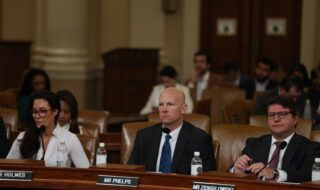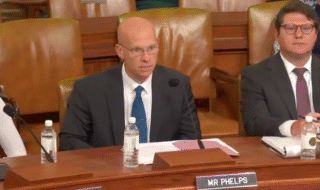March 5, 2025
Iowa State Director Matt Everson reacts to NFIB's latest report about health care policies
The National Federation of Independent Business (NFIB), Iowa’s leading small business advocacy organization, released a new health care policy paper entitled, “Addressing the Health Insurance Affordability Crisis for Small Businesses.” The findings reveal a dire prognosis for the small-group insurance market as employer-provided health coverage is becoming unsustainable for millions of small businesses and their employees.
“The fact that only 30% of small businesses nationwide can still offer health insurance is deeply troubling for Iowa’s rural communities and small towns,” said NFIB Iowa State Director Matt Everson. “Our state’s small business owners need lawmakers to expand access to Health Savings Accounts, improve employer pooling arrangements, and prioritize other policies that make coverage more affordable.”
Key findings from the report:
- The small-group market is in freefall, with enrollment plummeting from 15 million individuals in 2014 to just 8.5 million in 2023, a 44% drop.
- Average premiums for small businesses have skyrocketed: Average single plan premiums have gone up 120% in the last two decades, while average family plan premiums have increased by 129% for firms with 50 or fewer employees.
- Only 30% of small businesses still offer health insurance, down from nearly 50% in 2000.
- Ninety-eight percent of small businesses say they are concerned about whether they will be able to afford to continue offering health insurance in the next five years.
- Small businesses pay twice as much for health insurance as large businesses, firms with less than $600,000 in revenue spend nearly 12% of payroll on health benefits, compared to 7% for firms with over $2.4 million in revenue.
Legislative recommendations include:
- PBM Power Grab legislation (HSB99/SF383) – Unfortunately, misguided PBM legislation has been introduced again – though, this might be the worst one yet. It is admirable that policymakers are seeking ways to lower the out-of-pocket cost of prescription drugs; however, proposals to ban commercial-spread pricing arrangements and pass-through rebates and other remuneration to consumers at the point of sale merely shift costs among consumers, not lower the cost of drugs, resulting in higher premiums. In addition, a dispensing fee on every transaction will almost certainly be borne by fully insured employers struggling with unfathomable premiums. The current estimate is that this piece of legislation will cost Iowans $4 billion dollars more in healthcare costs over the next several years.
- Protect Employer-Sponsored Insurance
- Support Small Businesses with Targeted Health Insurance Tax Credits
- Expand Individual Coverage Health Reimbursement Arrangements (ICHRAs)
- Improve Employer Pooling Arrangements
- Expand Access to Health Savings Accounts (HSAs)
- Protect Small Businesses’ Access to Stop-Loss Insurance
- Expand Affordable Coverage Options
- Eliminate One-Size-Fits-All Mandates That Drive Up Premium Costs and Limit Competition
- Promote Price Transparency and Price Certainty
- Discourage Hospital Consolidation
- Reduce Prescription Drug Prices Through Innovation
View “Addressing the Health Insurance Affordability Crisis for Small Businesses” here.
NFIB is a member-driven organization advocating on behalf of small and independent businesses nationwide.
Related Articles














